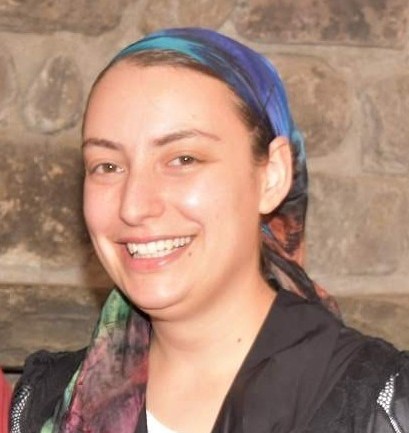Michal Elias-Bachrach
Credentials
Finances
Licensed in Israel
Licensed Abroad
- HaRav Berlin
- Jerusalem
- Email Me
-
 Business HoursEveningsFridays/Weekends
Business HoursEveningsFridays/Weekends
Michal Elias-Bachrach
 Verified
Verified
Credentials
Clinical Social Worker
MSW
Finances
250-350 NIS
None
Free Consultation
ABOUT THE THERAPIST
Compassionate support for parents in unpredictable times.
Families know their children best, and I always respect that knowledge in my helping approach. In these uncertain and scary times, I work with parents and families to unlock their inner resilience and find the best strategies to help them feel calm and connected, and therefore able to help their children thrive. I always strive to create a warm and caring environment where families feel comfortable exploring both their current struggles and fears, as well as how their own experiences of being parented have shaped their parenting approach. Helping parents and caregivers uncover these deeper factors often opens a new perspective on parenting and helps caregivers purposefully decide how they would like to parent, rather than reacting to factors they were previously unaware of.
Parenting support, children and adolescents struggling with anxiety, depression, and behavioral issues.
My role is to help parents and caregivers learn the strategies that will help them be their best selves. I find what is working well within a family system and help parents and caregivers learn strategies to amplify those factors while minimizing the things that are not serving them. I help families come up with a vision of what they would like their family system to look like, and then help set small, manageable goals to achieve that vision.
I am a clinical social worker providing parenting support and coaching. I provide mostly online support, with the option for in-home services within the Jerusalem area. I let clients lead in terms of telling me what they need to focus on, and I incorporate aspects of different therapeutic approaches, including cognitive behavioral therapy, dialectical behavior therapy, positive parenting strategies, motivational interviewing, positive psychology, solution focused therapy, and appreciative inquiry.
QUALIFICATIONS
MSW
The Ohio State University
2016
Degree
MSWEducation
The Ohio State UniversityYear of Graduation
2016Years in Practice
8
LICENSED IN ISRAEL
Registered Social Worker in Israel
48448
LICENSED IN THE USA
ADDITIONAL CREDENTIALS
Certified Health and Wellness Coach, 2018
DISTANCE COUNSELING
Online Therapy
PRIMARY SPECIALTIES
Adjustments
Anxiety / Panic
Behavioral Concerns In Children
Depression
Parenting Issues / Training
ADDITIONAL SPECIALTIES
N/A
CLIENT FOCUS
Population
Children
Adolescents
Families
Languages Spoken
English
Hebrew
Native Language
English
TREATMENT APPROACH
BehaviorismBehaviorism is an approach to psychology that emphasizes the role of the environment in shaping behavior. It is based on the assumption that behavior is determined by environmental influences, such as reinforcements and punishments, rather than by internal influences, such as thoughts and feelings.
Cognitive Behavioral Therapy (CBT)Cognitive Behavioral Therapy (CBT) is a type of psychotherapy that focuses on how one's thoughts, feelings and behaviors are connected and can be changed. It is based on the idea that how we think (cognition) and how we feel (emotion) can influence how we behave. CBT helps people identify and challenge distorted thinking and replace it with more balanced thinking, leading to improved mood and behavior. ‘Homework’, usually containing practical writing exercises, is often completed by the client between sessions to reinforce the therapy. Examples of tools that practitioners often use are journaling, challenging beliefs, and mindfulness.
Dialectical Behavior Therapy (DBT)Dialectical Behavior Therapy (DBT) is a type of cognitive-behavioral therapy developed by Marsha Linehan to help people learn to better manage and cope with emotions and stress. It focuses on developing skills and strategies to help regulate emotions, improve relationships and communication, and reduce self-destructive behaviors. Through DBT, people learn to identify and modify unhealthy thoughts and behaviors, while also learning to accept and validate their own feelings. DBT teaches skills to help individuals become aware of and accept and regulate their emotions, tolerate distress, and improve interpersonal relationships.
Solution-Focused Brief Therapy (SFBT)Solution-focused therapy is a type of therapy that focuses on what is going right in a person’s life, as opposed to what is going wrong. It is based on the premise that when a person can identify what is working, they can build on it and make positive changes to the areas of their life that need improvement. A therapist using this approach will often ask questions designed to bring out a person’s strengths and resources, rather than focusing on problems or past issues. The aim of this type of therapy is to help people find solutions to their current problems, in order to build a better future. A solution-focused therapist encourages those in treatment to develop a vision of the future and offers support and guidance as they determine the skills, resources, and abilities needed to achieve that vision successfully.
SERVICES OFFERED
Coaching
Hadrachat Horim
Home-based Therapy

 Verified
Verified


